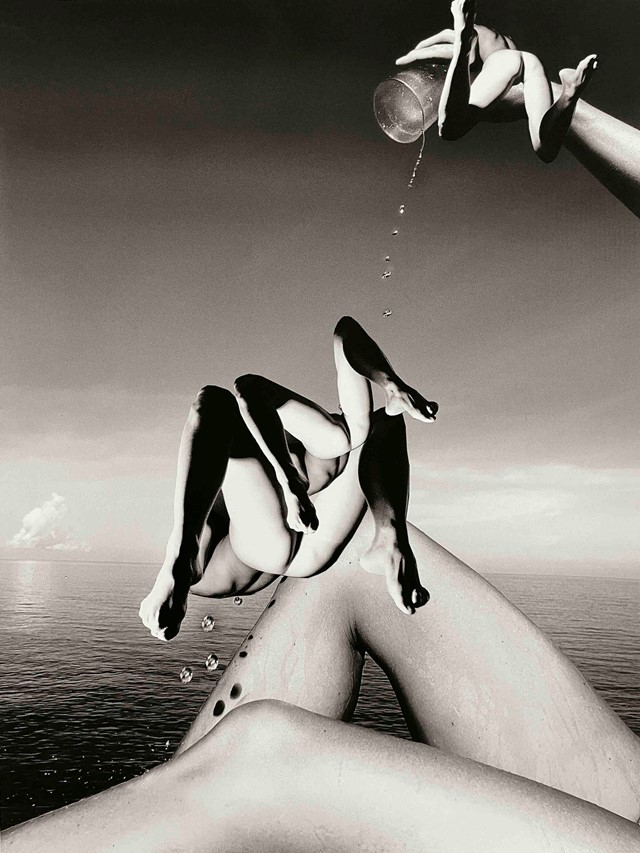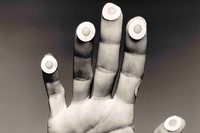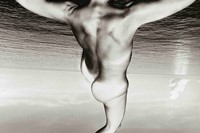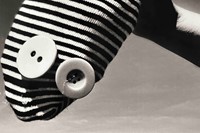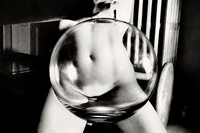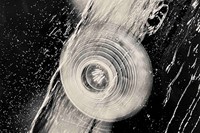“I always like when people can’t understand how I made an image,” Burnett says of her surreal, disorienting new book I Wash You Dry
Sun-bleached beaches, the bend of a knee, bubbles, shade … and sock puppets. This is the heady, often disorienting terrain of I Wash You Dry, New York-based stylist and photographer Katie Burnett’s second book of photographs. Rendered in black and white over 40 pages, the volume, published by Dashwood, is part of a limited edition of 750 copies.
Burnett’s first book, Cabin Fever, ploughed a similar furrow – self-portraits in black and white created during the pandemic – but her latest work speaks to freedom and escape. It is no surprise that she started working on it during the tail-end of Covid-19. The title holds a clever double meaning that suits the contents perfectly: there’s definitely a hearty dose of the surreal in these pages and a sense that not everything is as it seems. Burnett uses her body as a motif – contorted, exposed and somehow untamed – as well as expansive vistas and homemade puppets.
The photos were taken in Burnett’s Brooklyn apartment – among her belongings and where she is most anchored to her sense of self – and in Jamaica. For the latter location, she packed her bags with more socks than a tropical trip might traditionally necessitate, as well as craft supplies suggestive of a children’s TV presenter. She admits that the sight of her – both model and photographer – posing with animated socks on the Caribbean shoreline raised some eyebrows.
I Wash You Dry also manages to capture both intense nostalgia and ‘right now’ modernity. Where does she get inspiration from? “So many places. I love old photos, old movies but also just stuff that’s lying around, that I use every day. I like to give those items a new purpose, or life.” That Burnett is only a couple of years into her photography career makes her work even more remarkable. It is true that she has always been linked to photography; Burnett is fashion director of Centrefold and has worked as a stylist and creative consultant with the likes of Chanel and Vogue Italia, so she’s had quite the education and experience when it comes to imagery. But the originality, the conviction and the playfulness of I Wash You Dry all suggest Burnett is someone who has spent decades behind a camera.
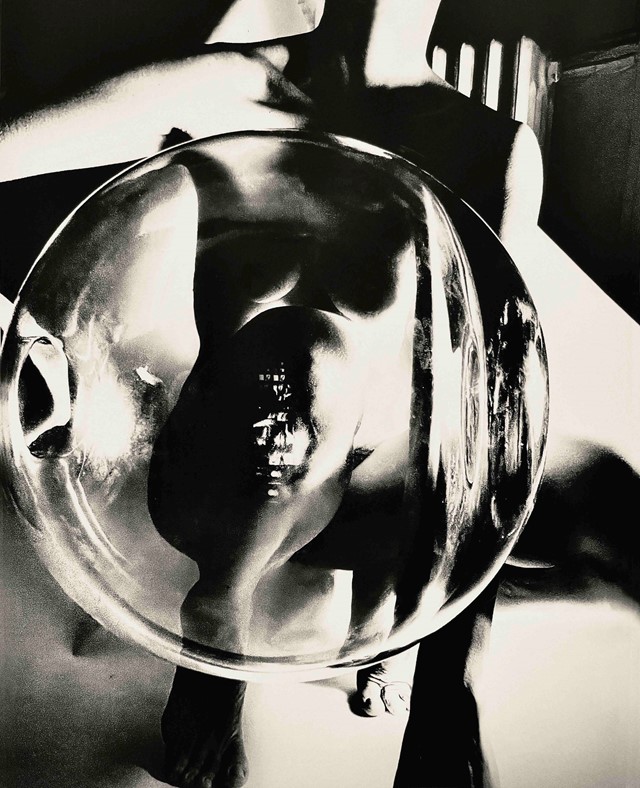
Cabin Fever was made when Covid-19 forced the world into lockdown. Burnett, used to long days on her feet, found herself confined to her apartment with plenty of time on her hands. But instead of leaning into sourdough starters, jigsaw puzzles and bingeing Normal People, Burnett took the downtime as a chance to create – by herself, for herself. How did she start? “With potatoes,” she laughs. “I took photos of potatoes. Sometimes I’d decorate them or whatever, but I just played around with potatoes, basically.”
These, frankly, off-the-wall roots took hold and before long Burnett was engrossed in what would become her first book. Her approach to photography since then, and evident in I Wash You Dry, shares a sense of spontaneity, opportunism and surrealism. You get the impression that she doesn’t want to hand hold audiences. “I always like when people can’t understand how I made an image,” she admits, adding that at a recent exhibition of her work at Unseen Amsterdam people were looking at the pictures with their heads turned. “I love that people might want to look at my work upside down.”
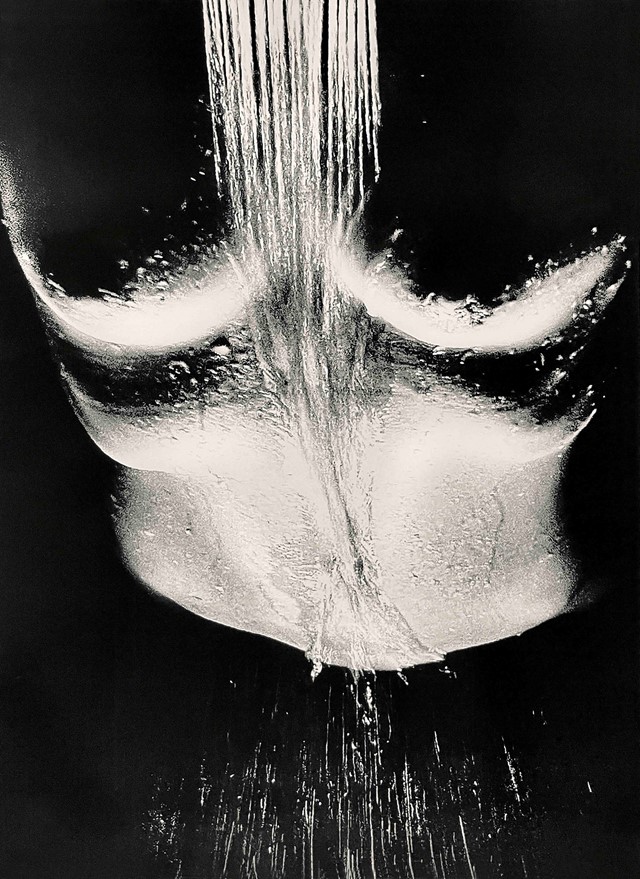
In a lot of the images, Burnett – behind the camera and in front of it – is literally in a tricky position. Posing and shooting simultaneously must be tough? “Yes!” she agrees. “But I think that’s what makes the images work. I don’t think any of them could have turned out this way if I hadn’t done both. I mean, I have used my toe to press the camera shutter!” This multitasking definitely adds to the surreal quality of the work, but so does the editing process, which is in some cases heavy – often incorporating intricate collage – which is what gives the kaleidoscope effect to so many of the images. “The collage stuff definitely added a new element,” she says. “One image – a cup pouring into the ocean was created towards the end.”
The post-shoot is, she says, just as important as capturing the photos themselves. Often she’d start editing images on the day she shot them, poring over them at night and considering how the layouts would look. “For me it was really important to have pages which worked with each other in a complementary or even weird way: two totally different scenarios next to each other.” But the edit was not an end point: “It gave rise to further inspiration and images that I then took in New York.” Burnett recalls wetting her legs in the shower so they’d match a beach shot from the Caribbean. Wasn’t there a temptation to keep tinkering and playing around with all of these ideas; when potential is infinite, how did she ever reach an endpoint? “I wanted the book to be the best of the best,” she says. “I didn’t want an excess of images or images for no reason. I needed to hit an exact 40-page mark. I wanted to feel content and be like ‘this is it’.”
I Wash You Dry by Katie Burnett is out now via Dashwood Books.
